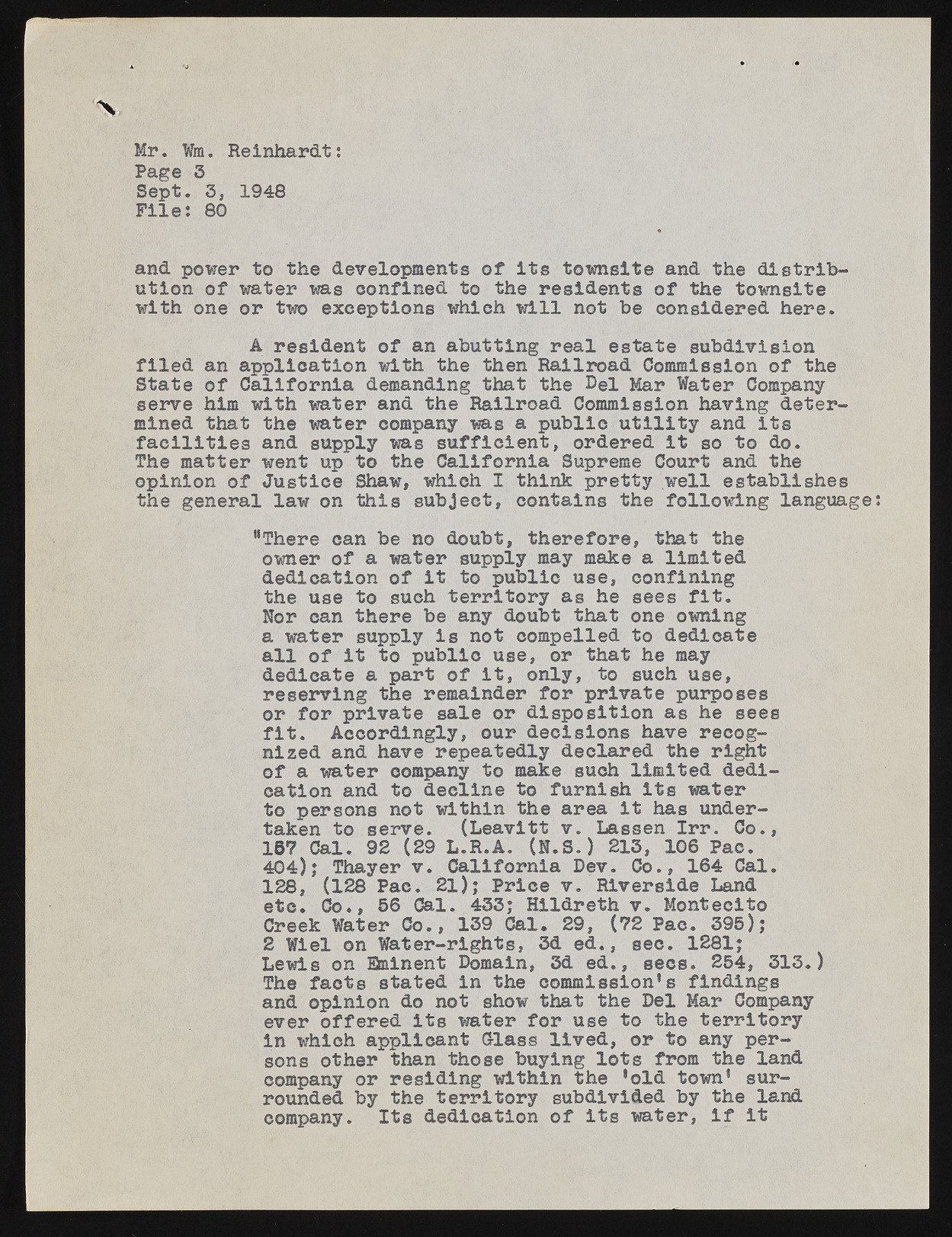Copyright & Fair-use Agreement
UNLV Special Collections provides copies of materials to facilitate private study, scholarship, or research. Material not in the public domain may be used according to fair use of copyrighted materials as defined by copyright law. Please cite us.
Please note that UNLV may not own the copyright to these materials and cannot provide permission to publish or distribute materials when UNLV is not the copyright holder. The user is solely responsible for determining the copyright status of materials and obtaining permission to use material from the copyright holder and for determining whether any permissions relating to any other rights are necessary for the intended use, and for obtaining all required permissions beyond that allowed by fair use.
Read more about our reproduction and use policy.
I agree.Information
Digital ID
Permalink
Details
More Info
Rights
Digital Provenance
Publisher
Transcription
Mr. Wm. Reinhardt: Page 3 Sept. 3, 1948 File: 80 and power to the developments of its townsite and the distribution of water was confined to the residents of the townsite with one or two exceptions which will not be considered here. A resident of an abutting real estate subdivision filed an application with the then Railroad Commission of the State of California demanding that the Del Mar Water Company serve him with water and the Railroad Commission having determined that the water company was a public utility and its facilities and supply was sufficient, ordered it so to do. The matter went up to the California Supreme Court and the opinion of Justice Shaw, which I think pretty well establishes the general law on this subject, contains the following languag "There can be no doubt, therefore, that the owner of a water supply may make a limited dedication of it to public use, confining the use to such territory as he sees fit. Nor can there be any doubt that one owning a water supply is not compelled to dedicate all of it to public use, or that he may dedicate a part of it, only, to such use, reserving the remainder for private purposes or for private sale or disposition as he sees fit. Accordingly, our decisions have recognized and have repeatedly declared the right of a water company to make such limited dedication and to decline to furnish its water to persons not within the area it has undertaken to serve. (Leavitt v. Lassen Irr. Co., 16? Cal. 92 (29 L.R.A. (N.S.) 213, 106 Pac. 404); Thayer v. California Dev. Co., 164 Cal. 128, (128 Pac. 2l)j Price v. Riverside Land etc. Co., 56 Cal. 433; Hildreth v. Montecito Creek Water Co., 139 Cal. 29, (72 Pac. 395); 2 Wlel on Water-rights, 3d ed., sec. 1281; Lewis on Eminent Domain, 3d ed., secs. 254, 313.) The facts stated in the commission’s findings and ©pinion do not show that the Del Mar Company ever offered its water for use to the territory in which applicant Class lived, or to any persons other than those buying lots from the land company or residing within the 'old town' surrounded by the territory subdivided by the land company. Its dedication of its water, if it

